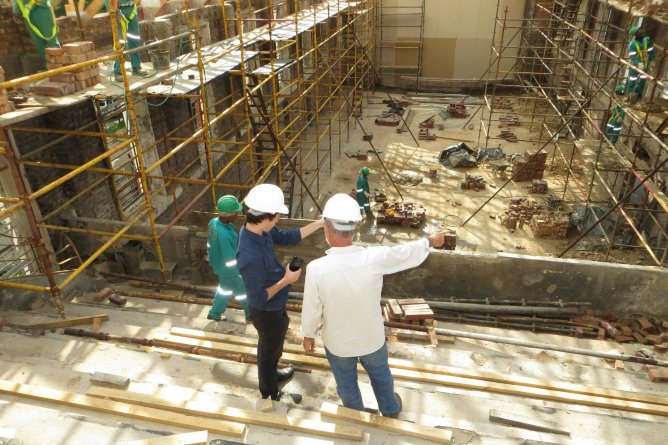Sustainable construction practices are gaining significant traction worldwide, and India is no exception. With increasing awareness of environmental issues and the need for eco-friendly solutions, the construction industry is embracing sustainability. Members of the Global Construction Fraternity (GCF) are at the forefront of this movement, implementing innovative practices that set new standards for the industry. Here’s how GCF members are leading the way in sustainable construction.
1. Use of Eco-Friendly Materials
One of the primary ways GCF members are promoting sustainability is by using eco-friendly materials. These materials have a lower environmental impact compared to traditional construction materials. Examples include fly ash bricks, recycled steel, bamboo, and low-VOC (volatile organic compounds) paints. By opting for sustainable materials, GCF members reduce their carbon footprint and contribute to the conservation of natural resources.
2. Energy-Efficient Building Designs
Energy efficiency is a crucial aspect of sustainable construction. GCF members are adopting energy-efficient building designs that minimize energy consumption and reduce greenhouse gas emissions. This includes incorporating features such as proper insulation, energy-efficient windows, and the use of renewable energy sources like solar panels. These designs not only reduce environmental impact but also lower operating costs for building owners.
3. Water Conservation Measures
Water scarcity is a significant concern in many parts of India. To address this, GCF members are implementing water conservation measures in their projects. This includes rainwater harvesting systems, greywater recycling, and the use of water-efficient fixtures. By conserving water, these practices help ensure a sustainable water supply for future generations.
4. Waste Reduction and Management
Construction projects often generate a substantial amount of waste. GCF members are taking proactive steps to reduce and manage waste effectively. This includes implementing waste segregation on-site, recycling construction debris, and using prefabricated components to minimize material wastage. Effective waste management practices contribute to a cleaner environment and promote the efficient use of resources.
5. Green Building Certifications
Many GCF members are pursuing green building certifications such as IGBC (Indian Green Building Council) and GRIHA (Green Rating for Integrated Habitat Assessment). These certifications recognize buildings that meet specific sustainability criteria, including energy efficiency, water conservation, and indoor environmental quality. Achieving these certifications not only demonstrates a commitment to sustainability but also enhances the marketability and value of the properties.
6. Sustainable Urban Development
GCF members are also contributing to sustainable urban development by creating communities that promote a healthy and balanced lifestyle. This includes developing projects with green spaces, efficient public transportation links, and amenities that encourage walking and cycling. Sustainable urban development reduces the overall environmental impact of urbanization and enhances the quality of life for residents.
7. Educating and Training Workforce
Sustainable construction requires a well-informed and trained workforce. GCF members are investing in the education and training of their employees to ensure they understand and implement sustainable practices effectively. This includes conducting workshops, certification programs, and on-site training sessions focused on sustainability principles and techniques.
8. Community Engagement and Awareness
Engaging with the community and raising awareness about sustainable practices is another way GCF members are making a difference. By organizing community outreach programs, workshops, and seminars, they educate the public about the importance of sustainability and how they can contribute to a greener future. This community engagement fosters a culture of sustainability that extends beyond individual projects.
Conclusion
Sustainable construction practices are essential for the long-term health of our planet and the well-being of future generations. Members of the Global Construction Fraternity are leading the charge by implementing eco-friendly materials, energy-efficient designs, water conservation measures, waste reduction strategies, green building certifications, sustainable urban development, workforce training, and community engagement. These efforts not only enhance the environmental performance of their projects but also set a benchmark for the entire construction industry in India. As we move forward, GCF members will continue to play a pivotal role in driving sustainable construction practices and creating a greener, more sustainable future.

